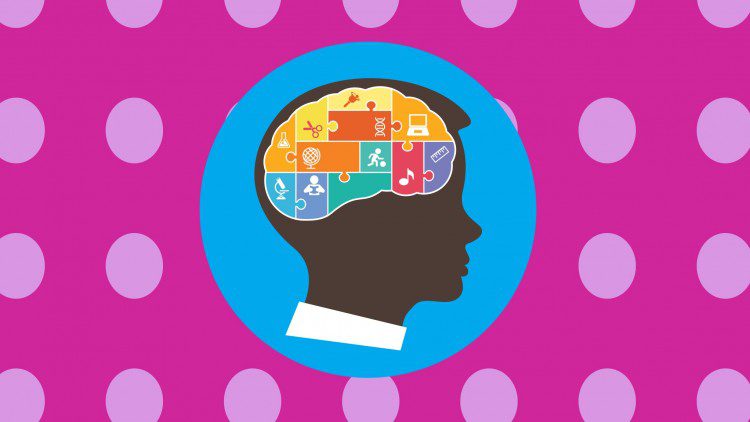Mind Mapping Mastery –> Effective Mind Maps -> Step by Step

- Description
- Curriculum
- FAQ
- Reviews
Udemy's Top Selling Mind Mapping course with just under 40,000 students across 173 countries and more than 4,000 reviews (with 2,500+ Five-Star ratings).
Learn effective mind mapping to enhance your career and accelerate your studies at school, university, college or business school. At the same time maximising your personal development, your goal setting and planning, the preparing and completing of assignments, and much more
The course goes BEYOND Mind Mapping itself and covers both how the memory works and how to integrate mind mapping into your daily work or study. It can help you remember and recall articles, remember OTHER E-LEARNING courses, and help prepare and revise for exams etc, etc.
Most IMPORTANTLY the course teaches you how to use mind maps to think more clearly and increase personal productivity. You’ll learn how to save time on any task that requires planning, preparation, and clarity. You'll learn the important principles of mind mapping and HOW and WHY this tool enhances learning, understanding, and memory
By following this course STEP-BY-STEP, and not trying to rush ahead, you'll ensure that you are able to maximise the effectiveness of the technique, streamline your thought processes and thereby become more productive using this brain-friendly technique
You'll be taught how to develop and use this powerful productivity tool in a unique and effective way.
Master the Skill of Mind Mapping
-
Think clearly and streamline ideas so you can express them effectively
-
Quickly organize thoughts, ideas, or goals
-
Efficiently prepare events, speeches, articles, business plans, or marketing plan
-
Enhance your Cognitive Experience
-
Learn this technique that taps into the multitasking capability of the subconscious mind.
-
Get information into your head quickly, and back out again just as fast.
-
After completing this course, you will be equipped with a thought-organizational tool that will change the way you plan. Either for business or personal use, your mental approach to issues or ideas will become fundamentally different.
Contenu et vue d'ensemble
-
The course starts with an overview of the purpose and structure of the course.
-
You’ll soon see why mapping is so effective.
-
The benefits of mind mapping will be illustrated clearly.
-
You will be looking over the instructor’s shoulder so you can watch how it works.
-
The course will ease you into creating your mind maps — first through a series of guided exercises, then through open assignments pertaining to your personal goals.
-
Quizzes along the way will track your progress and ensure you’re grasping the concept.
Your verbal-numeric working memory can only juggle 3 or 4 complex ideas at any one time. Mind mapping allows you to extend this by adding spatial and visual-spatial working memory into the working memory mix.
Worth repeating: By following this course step-by-step, and not trying to rush ahead, you'll ensure that you are able to maximise the effectiveness of the technique, streamline your thought processes and thereby become more productive.
Learn to LOVE mind Mapping and use it effectively and productively ENROL NOW!
-
1Expectations: What you can expect to achieve through completing this courseVideo lesson
This lecture shows you the quality of the Mind Maps that you can expect to achieve once you've fully participated in and completed the course (including doing all the practice exercises and asking for feedback where necessary). The course shows you how to create great mind maps with pen and paper (so we are not using any proprietary mind mapping software) There are several reasons for this: one is that we don’t want to struggle with learning both how to do mind mapping whilst also learning how to navigate particular software (and all software is different) and second we want to get the ‘feel’ of the technique and this is not easily achieved with computer interfaces. We do however create some of the mind maps on this course using the iPad and other electronic devices which use drawing programs where we can still get the 'feel' of the technique
-
2The Course PurposeVideo lessonThis lecture outlines the purpose of the course
-
3Structure of the CourseVideo lessonThis lecture outlines the structure of the course
-
4YES you can SUCCEED with this course - Allaying Any FearsVideo lesson
This lecture is intended to allay any fears you may have about undertaking new learning. You can skip this lecture if you are already fully confident that you can succeed with the course
-
5Getting into the Right Frame of Mind for LearningVideo lesson
This short lecture reminds us that the first thing we need for effective learning is to be in the right frame of mind
-
6Benefits of Mind MappingVideo lesson
This lecture shows a mind map being created. (apologies for the poor quality on video and audio for this lecture). The mind map is about the benefits of the technique. All the videos with mind maps are best viewed in full screen mode
-
7The Benefits of Mind MappingQuiz
A quiz to assess your understanding about some of the key benefits of Mind Mapping
-
8Mind Map a HolidayVideo lessonThis lecture shows a mind map being created about a holiday in Tenerife. Again the best viewing experience will be in full screen mode
-
9Quiz about the holiday in TenerifeQuizThis quiz assesses how well you were able to 'decode' the mind map- and also how much of the information you can now recall
-
10Mind Map an ArticleVideo lessonThis lecture shows a mind map summarising the key points from an article. The article is entitled 'Cultivating the Mind' and was published in Positive Health magazine. The mind map has already been created and the lecture talks us through the map (and thereby shows how to decode or 'reconstruct' the intended meaning)
-
11The 4 Stages of Learning Anything NewVideo lesson
This lecture focusses in more detail on one of the topics from the article 'Cultivating the Mind for Positive Health'. The focus is on four of the important processes required to achieve effective learning. These processes can be drawn as a simple cycle as described by Prof Phil Race
-
12Learning about Your BrainVideo lessonThis Lecture focusses in more detail on another of the topics from the article 'Cultivating the Mind for Positive Health'. The focus here is on the two sides of the brain. A key feature of Mind Mapping is that it utilises both sides of the brain more effectively than any other writing/summarising technique.
-
13Quiz on the Brain and LearningQuiz
Test your understanding about Learning and the Brain
-
14Mindmapping 'How to Mind Map'Video lessonIn this lecture you observe a mind map being created (about 'how to mind map') and you can also hear the thinking that underpins the creation of the map.
-
15Observe Good PracticeVideo lessonThis short lecture divulges the second secret for effective learning that is to observe good practice
-
16The Benefits from ReadingVideo lesson
This lecture outlines the benefits you get from reading mind maps. Reading mind maps out loud also develops and uses your 'auditory' learning pathways.
When you read a Mind Map you utilise both sides of the brain. The right side of your brain is good with seeing the big picture, 'filling in' the missing spaces on the map and making connections with what you already know. The left side of the brain likes to see the individual parts of the map, loves hierarchical organisation of the information, and values 'trigger' words to help recall information
After each READING EXERCISE please PAUSE to REFLECT upon 'How easy or difficult' you found the exercise (and bear in mind the more you do these types of exercises the easier it becomes)
-
17PRACTICE ACTIVITY - Read about a Holiday in GoaVideo lesson
In Section 2 of the course, you saw a mind map about a holiday being created. In this lecture you have the opportunity to read for yourself about a holiday in Goa and to see how easy or difficult it is to 'decode' or 'reconstruct' the author's intended meaning. How easy is it to get the 'gist' of this holiday? You'll need to view this mind map in fullscreen mode to be able to see the text.(or print out the mind map from the supplementary material)
-
18Gist of the Goan HolidayQuiz
-
19PRACTICE ACTIVITY - Read a Mind Map about 'How to Mind Map'Video lessonHere your task is to read a mind map about 'How to Mind Map' taken from an article published in the magazine Teaching Expertise. Can you get the gist of the topic? You'll need to view this mind map in fullscreen mode to be able to see the text.(or print out the mind map from the supplementary material)
-
20Some key points about 'How to Mind Map'Quiz
-
21PRACTICE ACTIVITY - Read about a bookVideo lesson
This lecture is a mind map of a book summary. The book is the Seven Laws of Success by Deepak Chopra. How easy is it to get the gist of the book from the mind map?
-
22The Seven Laws of SuccessQuiz
See how much you have gleaned about the book
-
23Practice the Easiest Things FirstVideo lesson
This short lecture gives us the third secret for effective learning that is to practice the easiest steps first
-
24Getting ready to copy a Mind MapVideo lesson
A short introduction to the copying step for learning effective mind mapping
-
25PRACTICE ACTIVITY - Step by Step copying of a Mind MapVideo lessonIn this lecture your task is to copy a well constructed mind map. How easy is this for you to do? Remember the video can be paused if you need more time to copy. Recommend viewing in full screen mode
-
26Get the Feel of the New TechniqueVideo lesson
This short lecture divulges the fourth secret for effective learning that is to get the feel of a new technique.
-
27Importance of Integrating the Key IdeasVideo lessonThis lecture gives an overview of section 5. This section emphasises the importance of understanding the key ideas that underpin the effectiveness of the technique before you begin to create your own maps. If you take short cuts and start mind mapping before you understand the 'why' (why do it this way and not that way) its likely that your maps will begin to look more like spider diagrams and consequently will not be as effective
-
28How the Memory Works and a Memory Exercise (PRACTICE ACTIVITY)Video lesson
Watch Barry Mapp speaking live to a group of management consultants about memory.
Barry shares a very simple model about how our memory works and then he carries out an experiential exercise to show that the memory does indeed seem to work in the way the model predicts. When you view this video follow the instructions given to the consultants, do the exercise alongside them and you will learn some new things about how YOUR memory works. This is Part One - the exercise concludes in part two.
The reason for including this video in this Mind Mapping Course is that it demonstrates (amongst other things) the power of key (or 'trigger') words to help the brain recall information. One way of looking at a Mind Map is that it is a network of closely associated keywords (arranged hierarchically) and this helps to quickly retain and then recall information.
-
29Conclusion of - PRACTICE ACTIVITY - The Memory ExerciseVideo lesson
Part 2 of the Live presentation delivered to a group of management consultants where you discover the importance of 'trigger words' for accessing your temporary or permanent 'memory cache'
In Part 1 (lecture 21) Barry gave you twenty pairs of words. Please now continue with the memory exercise in this video (which should be viewed within 24 hours of watching Part 1 for maximum effect) where Barry helps you to 'recover' nearly all of the information.
This lecture starts with Barry talking briefly about long and short term memory. He then concludes the memory exercise demonstrating that most of the information delivered can be recalled effortlessly as he uses the first word of each pair to 'trigger' the second word. The idea is that you join in with this exercise alongside the consultants and you shout out the associated words if they come immediately to mind.
-
30Information Hierarchies and Chunking UpVideo lessonThis lecture tells us more about two key features of mind maps. Hierarchical organisation of information and the concept of chunking up and chunking down
-
31Key Points About Mind MappingVideo lesson
This lecture summarises the key points about mind mapping that we have learnt so far on this course
-
32Start Integrating the Key PrinciplesVideo lesson
This lecture divulges the fifth secret for effective learning and that is to start integrating the key principles before you get to the more tricky bits (as becoming competent in the key fundementals will help when you're faced with greater complexity).
BONUS: There is also now a downloadable pdf document (in RESOURCES) summarising important aspects of human memory and study skills together with a separate paper on keyword selection.
-
33Introduction - Creating a Mind Map TemplateVideo lesson
An overview of this section of the course showing you how you can use templates to 'kick-start' your first few mind maps. This lecture also emphasises that when it comes to mind mapping less is more. You only need a few trigger words on your mind map to help you recall a huge amount of information that appears to lie 'dormant' in your head.
-
34Life HighlightsVideo lessonIn this lecture you'll see the course tutor creating a template for you to use in the next lecture when you create your first mind map. In fact you'll already have seen some of the thinking that underpins the headings chosen (main branches) in the lecture on 'information hierarchies and chunking up' in the previous section. Once the template has been created, Barry undertakes the identical task you have in the next lecture and that is to 'map out' some of his 'life highlights' with some surprising results.
-
35PRACTICE ACTIVITY - Map Your Life HighlightsText lessonUse this template to create your own 'Life Highlights Mind Map'. There is no need to spend more than 10 minutes on this task unless you want to.
-
36PRACTICE ACTIVITY - GOALS - Use the template to set GoalsVideo lesson
In this lecture you are first shown a simple way to 'draw out' a central topic so it stands out on the page. Then how to create main branches. FInally use the template constructed to set some goals using the mind mapping technique (you can copy the template or print it out to use)
A FEW OTHER TEMPLATES have been added - more suitable perhaps if you are still in school
-
37Using The Aids at your DisposalVideo lessonThis short lecture divulges the sixth secret of effective learning and that is to use all the aids at your disposal in order to help you achieve your task.
-
38PRACTICE ACTIVITY - create a Personal Mind MapVideo lessonIn this lecture your task is to create a personal mind map (with a choice of three topics)
-
39Create a Work Mind Map (PRACTICE ACTIVITY)Video lesson
As explained in this short video your next task is to create a 'work related' mind map
-
40PRACTICE ACTIVITY - create one more Mind Map using these suggestionsVideo lessonHere your task is to create a further mind map - with several different topics suggested (or you can choose a topic of your own)
-
41Practice Makes Permanent - Only You Can Practice the TechniqueVideo lesson
This lecture divulges the seventh secret of effective learning that practice is important in order to develop competence and that its practice that makes permanent and so it must be correct practice in order to develop good habits and only you can do the practice (if someone else does it for you then they, not you, develop the competence).
Also for those students who are interested in integrating mind mapping into their own personal study programme, I've included here a document on Study Skills. This document is taken from a programme that was run by Birmingham University (where I was a visiting lecturer) back in 2004 and the project finished a couple of years ago. I produced the sections on Memory,Learning, Study and Mind Mapping. Much of the material on memory is already covered in the course - the material on study skills and mind mapping begins on page 10 of the document. Although the guidance was produced in 2004 it is all still very relevant today.
-
42Study and Review and Take Action to ImproveVideo lesson
This lecture reviews the complete course (review is important for learning). Please note that the course was originally titled the 'Secrets of Effective Mind Mapping' but Udemy asked us to change this title just prior to course publication.The lecture starts with Barry creating the mind map at x3 speed - (so if you'd like to see if you can get the 'gist' of the map as it is created you'll need to slow it down or pause it.) After the colour is added to the map you can then hear Barry using the map to give a spoken review of the course so far. Please watch in full screen mode so you get to see the details.
-
43Review the Mind Maps you have createdQuiz
Check these questions when you review your maps
-
44Persevere with ImprovementVideo lessonThis lecture emphasises the importance of persevering with the principles of mind mapping in order to move toward a state of unconscious competence in the technique. Once applying what you have learnt becomes almost automatic, then is the time to see if you can improve upon Buzan's principles of Mind Mapping which have stood the test of time.
-
45You have completed the course - Congratulations!Video lesson
Time to congratulated yourself - very well done, you have now completed this very extensive Mastery course!
You have now completed the course (although there are more lectures to view if you wish in the bonus section). If you'd like to receive your course completion certificate without having to view the bonus lectures first follow the instructions here:
The certificate is presented by UDEMY automatically when all the lectures and quizzes have been 'ticked'. If you don't wish to view the bonus section yet, but would like to receive your completion certificate now you can MANUALLY tick all the bonus lectures as 'completed' and this should then generate your certificate
Whether you were a beginner or an experienced mind mapper I hope you have benefited from taking the course and it would be great if you could leave a written review of the course both here are (for business users) on my Linkedin Profile

Commencer
Académie

Les cookies sont de petits fichiers de données qu'un site Web envoie subrepticement à votre ordinateur, souvent sous la forme de fichiers texte ou de fichiers image. Les cookies nous permettent de stocker ou de récupérer des informations sur votre navigateur, qui pourraient être utilisées pour identifier qui vous êtes. Ces données sont généralement utilisées pour faire fonctionner le site comme vous l'attendez. Vous avez la possibilité de désactiver certains cookies car nous respectons votre vie privée. Pour en savoir plus et modifier vos paramètres, cliquez sur l'un des titres de catégorie ci-dessous. Le blocage de certains types de cookies, en revanche, peut sérieusement nuire à votre expérience sur le site et à l'accès aux services.
Ces cookies permettent au site Web de fournir des fonctionnalités et une personnalisation améliorées. Ils peuvent être définis par nous ou par des fournisseurs tiers dont nous avons ajouté les services à nos pages. Si vous n'autorisez pas ces cookies, certains ou tous ces services peuvent ne pas fonctionner correctement.
Les cookies que nous avons mis en place sur ce site pour vous permettre de partager notre contenu avec vos amis et vos réseaux sont à l'origine de l'existence de ces cookies. Ils peuvent suivre votre navigateur sur différents sites et créer un profil de vos intérêts. Cela peut influencer le matériel et les messages que vous voyez sur d'autres sites Web. Vous ne pourrez peut-être pas utiliser ou voir ces outils de partage si vous n'acceptez pas ces cookies.
Les cookies de partenaires publicitaires peuvent être utilisés sur notre site Web pour créer un profil de vos intérêts et afficher des publicités pertinentes sur d'autres sites Web. Ils ne collectent pas d'informations personnellement identifiables, bien qu'ils soient construits sur l'identification unique de votre navigateur et de votre appareil Internet. Vous recevrez des publicités moins ciblées si vous refusez ces cookies.
Ces cookies sont essentiels au fonctionnement du site Web et ne peuvent pas être désactivés dans nos systèmes. Ils ne sont généralement définis qu'en réponse à des actions que vous effectuez, ce qui équivaut à une demande de services, comme la définition de vos préférences de confidentialité, la connexion ou le remplissage de formulaires. Vous pouvez modifier les paramètres de votre navigateur pour bloquer ou vous alerter de ces cookies, mais certaines parties du site ne fonctionneront pas correctement si vous le faites. Ces cookies ne stockent aucune information permettant d'identifier personnellement quelqu'un.
Compter les visites et mesurer l'activité est essentiel pour maintenir un site Web performant. Ces cookies nous permettent de faire exactement cela en fournissant des informations sur les pages les plus/moins populaires, la façon dont les utilisateurs se déplacent sur le site, etc. Sans ces cookies, nous ne serions pas en mesure d'améliorer les performances de notre site.

Rejoignez notre cercle restreint et ne manquez jamais un battement
De nouveaux cours, de nouvelles informations et de nouvelles compétences ont le potentiel d'améliorer considérablement votre vie. Assurez-vous de ne rien manquer et informez-vous automatiquement.
* Nous détestons les spams et vous promettons de ne rien envoyer que vous ne vouliez pas. En vous inscrivant, vous acceptez nos politique de confidentialité.









